Kashmir Backgrounder
Includes:
India & Kashmir: Breaking the Silence
In Kashmir, the scale of human rights violations from collective punishment and assassinations to custodial deaths and disappearances is staggering. Yet little of what goes on in that Himalayan region reaches the outside. Why? India controls the cameras, microphones and print media and it has been skillful in framing Kashmir in the 9/11 terrorism discourse. Those who resist Indian rule, Delhi tells the world, are fundamentalist jihadis backed by Pakistan. Kashmir is an unresolved issue dating back to the disastrous 1947 British partition plan to divide the sub-continent in two: a Hindu-majority India and a Muslim-majority Pakistan. Today, Kashmir is one of the most dangerous places on earth. Both India and Pakistan have huge militaries and nuclear weapons. And the Kashmiris are stuck in the middle. It is time past for the silence on Kashmir to be broken. Interview by David Barsamian.
Kashmir: Hell in Heaven
Kashmir is spectacularly gorgeous but the travel magazine spreads and tourist brochures mask a less than heavenly reality. An ongoing conflict has taken the lives of tens of thousands of Kashmiris. The Himalayan region is divided by India and Pakistan but claimed in its entirety by both. And trapped between these states are the Kashmiri people. What they might desire is of little concern to India and Pakistan who use Kashmir to justify massive military deployments. Cross border shootings and artillery strikes at any time could escalate into a major war. And don’t forget both countries have nuclear weapons. Kashmiri non-violent struggles against Indian rule have barely been covered in the media. It doesn’t fit the narrative India has propagated: These are Islamic terrorists controlled by Pakistan. Except for a few troublemakers, Kashmiris are happy to be part of India.
Interview by David Barsamian.
Kashmir: Telling the Story
I interviewed Khurram Parvez in Srinagar, Kashmir in February 2011. When I returned to India that September to follow up on reporting on the mass graves in Kashmir, I was denied entry by the Indian government. I’ve been banned from India ever since. Sadly, this interview is still relevant. Since August 2019 the Hindu nationalist regime ruling India has imposed even harsher conditions on Kashmiris and eliminated what little autonomy they had. This story needs to be told. But the G20 won’t hear it. Its tourism officials are visiting Kashmir in late May in what will be an orchestrated photo-op extolling the valley’s natural beauties and comparing Kashmir to paradise. Kashmir is off the media radar screen. India has carefully controlled the narrative. Interview by David Barsamian.
Dateline: Kashmir
The 17th century Mughal Emperor Jahangir upon seeing the spectacular beauty of Kashmir said, "If there is paradise on earth, It is this, it is this, it is this." Today, Kashmir is reduced to a veritable hell on earth. It has the dubious distinction of being the most militarized zone in the world. A rebellion against Indian rule, which erupted in 1989, has taken 70,000 lives. More than 8,000 people have been disappeared. Human rights violations are rampant. Yet barely any of this is the topic of media scrutiny or of concern to Washington policymakers who see New Delhi as a so-called strategic partner. India has successfully sold the line that Kashmiri resistance to its hegemony is illegitimate and is composed of terrorists who are linked to neighboring Pakistan, al-Qaeda and the Taliban.
Kashmir: Buried Evidence
Among the many issues plaguing South Asia, none is as violent and deeply contested as Kashmir. The major unresolved issue of the disastrous British partition of India in 1947, Kashmir has been the site of wars and the threat of wars, and probably the world's longest and most extensive military occupation. India brooks no international meditation to address the problem. What's the problem? A lot of Kashmiris don't want to be part of India. They didn't in 1947 and they don't, probably in even larger numbers, today. The U.S., champion of human rights elsewhere, is keen to access a major growing market, thus it says nothing of what India is doing in Kashmir. Its silence is becoming harder to maintain as now the earth is revealing dark deep secrets of Indian rule in Kashmir. The thousands of dead and missing are making noise. Interview by David Barsamian.
Inside Kashmir
Kashmir, renowned for its incredible beauty, is the site of a decades long military occupation mostly hidden from worldview. Adjectives like “intractable” and “protracted” often precede Kashmir. What do the Kashmiri people want? The answer usually is “Azaadi. Freedom.” Angana Chatterji, the noted scholar, in her essay “Kashmir: A Time for Freedom,” writes, “‘Freedom’ represents many things across India-ruled Kashmir. These divergent meanings are united in that freedom always signifies an end to India’s authoritarian governance. In the administration of brutality, India, the postcolony, has proven itself coequal to its former colonial masters. Kashmir is not about ‘Kashmir’. Governing Kashmir is about India’s coming of age as a power, its ability to disburse violence, to manipulate and dominate. Kashmir is about nostalgia, about resources, and buffer zones. The possession of Kashmir by India renders an imaginary past real.” Interview by David Barsamian.
Kashmir: The Struggle for Freedom
In 1947, the British partitioned India into India and Pakistan. One unsettled issue was then and remains now Kashmir. Once compared by a Moghul emperor to heaven on earth, today it is highly militarized zone with armed troops in the streets of the capital Srinagar. Kashmir's towns and villages are dotted with garrisons, checkpoints, roadblocks, barbed wire and towers. A rebellion against Indian rule erupted in 1989. Hundred of thousands of soldiers and security forces were sent to crush the uprising. Kashmir is the most densely military occupied place in the world. It has been caught between the rival claims and agendas of India and Pakistan. The wishes and desires of the Kashmiri people, who have their own language, culture and traditions, have been subordinated to the power politics of larger states.
Speakers
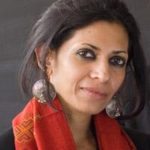
Angana Chatterji
Angana Chatterji is a convener of the International People’s Tribunal on Kashmir. She has taught social and cultural anthropology for many years and has been working with social movements, local communities, and citizens groups in India and internationally. She is the author of Violent Gods and contributor to Kashmir The Case for Freedom.
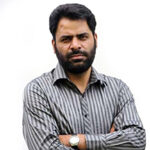
Khurram Parvez
Khurram Parvez, a Kashmiri human rights activist, is the program coordinator of the Jammu and Kashmir Coalition of Civil Society. He has been jailed by the Indian government since November 2021 joining many other Kashmiris behind bars. Time named him one of the 100 most influential people in the world calling him a “modern-day David.” Arundhati Roy calls him “one of the most remarkable people that I know. He and the organization he works for have for years meticulously documented the saga of torture, enforced disappearances, and death visited upon the people of Kashmir.”

Mohamad Junaid
Mohamad Junaid grew up in Kashmir in the 1990s and witnessed the rise of resistance against Indian rule. He has written on Kashmir in various newspapers and magazines and is a contributor to Until My Freedom Has Come, Of Occupation and Resistance and Kashmiri Futures. He teaches at the Massachusetts College of Liberal Arts.

Pankaj Mishra
Pankaj Mishra writes for The New Yorker, The New York Review of Books, The New York Times Book Review, and The Guardian. He is the author of Butter Chicken in Ludhiana, An End to Suffering, Temptations of the West and From the Ruins of Empire.
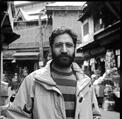
Parvaiz Bukhari
Parvaiz Bukhari is an independent Kashmir-based journalist whose articles appear in major South Asian newspapers, journals and magazines.
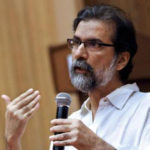
Sanjay Kak
Sanjay Kak is a New Delhi-based, award-winning independent documentary filmmaker and journalist. His films include How We Celebrate Freedom, Words on Water and Red Ant Dream. He is editor of the books Until My Freedom Has Come: The New Intifada in Kashmir and Witness.



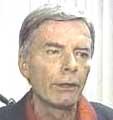

Anahid –
Thoughtful and timely given the history of Kashmir.
Anahid in Boulder
Suzanne –
Thanks for a great overview on the situation in Kashmir.
It really gets no press – you are one of very few voices bringing it to our attention.
Suzanne in Boulder